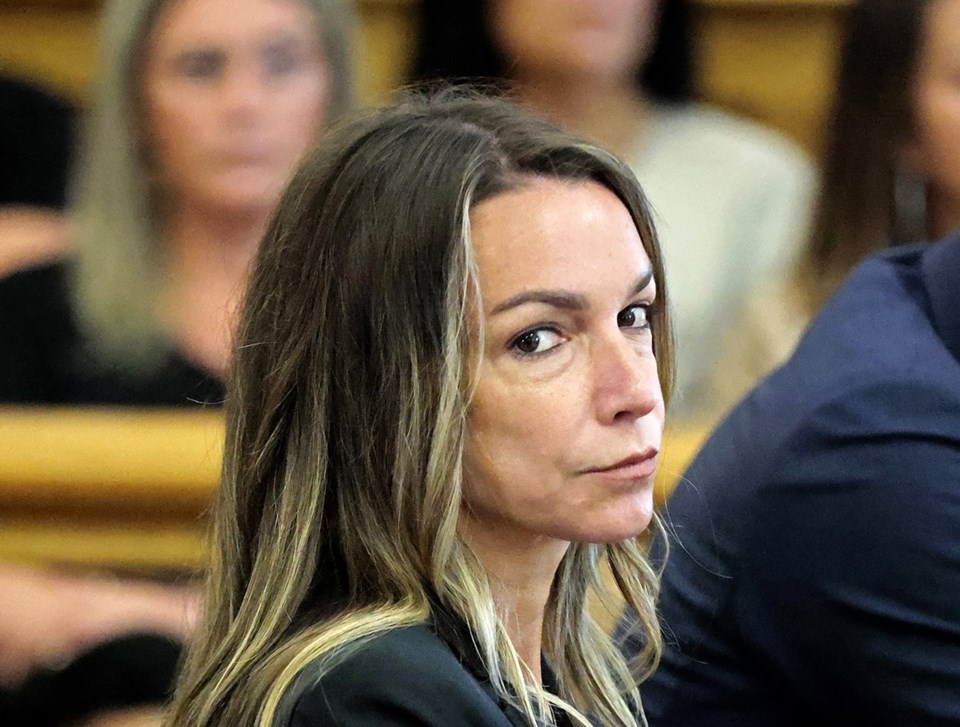DEDHAM, Mass. (AP) — A judge ruled that Karen Read can be re-tried for murder in the death of her Boston police officer boyfriend, dismissing arguments that jurors came forward after the mistrial to say they had unanimously agreed she wasn't guilty on two of the three charges she faced.
Read is accused of ramming into John O’Keefe with her SUV and leaving him for dead in a January 2022 snowstorm. Her two-month trial ended in July when jurors declared they were hopelessly deadlocked and a judge declared a mistrial on the fifth day of deliberations.
Judge Beverly Cannone's decision, released on Friday, means the case can move forward to a new trial set to begin Jan. 27.
The defense had presented evidence that four jurors said after the trial that the jury unanimously reached a not guilty verdict on second-degree murder and leaving the scene of a deadly accident and were deadlocked on the remaining manslaughter charge.
Trying her again on those two charges would be unconstitutional double jeopardy, the lawyers argued. They had also reported that one juror told them “no one thought she hit him on purpose or even thought she hit him on purpose.”
But the judge said the jurors didn't tell the court during their deliberations that they had reached a verdict on any of the counts. “Where there was no verdict announced in open court here, retrial of the defendant does not violate the principle of double jeopardy.”
Earlier this month, Read’s attorney Marty Weinberg requested that Cannone consider a range of options to prove the jury acquitted Read on the two charges.
She could poll the jury, Weinberg said, on whether they reached a verdict on the three counts or bring in the four jurors to be questioned anonymously. If she didn’t want to accept the defense declarations, he added, she could authorize the defense lawyers to ask the jurors “whether or not they would execute an affidavit that could be two sentences — we reached a final decision unanimously to acquit Ms. Read on counts 1 and 3.”
Prosecutors described the defense’s request to drop charges of second-degree murder and leaving the scene of a deadly accident as an “unsubstantiated but sensational post-trial claim” based on “hearsay, conjecture and legally inappropriate reliance as to the substance of jury deliberations.”
Assistant District Attorney Adam Lally, in the hearing earlier this month, urged Cannone to dismiss the defense motion.
Lally argued that the jury never indicated they had reached a verdict on any of the charges, were given clear instructions on how to reach a verdict, and that the defense had ample opportunity to object to a mistrial declaration.
Michael Casey, The Associated Press


